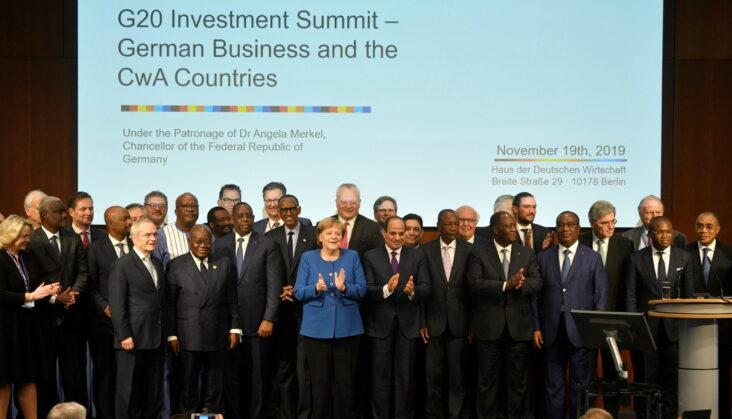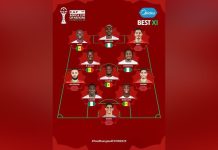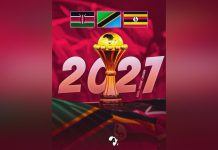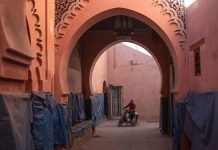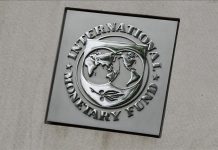Africa-Press – Mauritius. The coronavirus pandemic has sparked off the first recession in 25 years in Sub-Saharan Africa, the World Bank says. Amongst other consequences, Covid-19 has ‘exacerbated public debt vulnerabilities’.
Though the Paris Club was previously the sole institutional interlocutor of African states’ debt, China’s rise as a global power is proving to be a challenge.
Will differences between these two powerhouses have consequences? What are the implications for the countries benefitting from China’s financial assistance?
The Covid-19-related economic crisis “has brought a significant risk of debt distress in several African countries by exacerbating vulnerabilities that have built up over the past decade”, according to a BNP Paribas paper titled ‘Dealing with Africa’s Risk of Debt Distress (2021)’.
According to scholars Francisco G. Crneiro and Wilfried A. Kouame, the need for public funding has doubled the debt to GDP ratio “ in more than a quarter of sub-Saharan African countries”.
Since the 1950s, the Paris Club has regrouped main creditors and financial institutions involved in debt restructuring, providing both policy and financial tools.
Although China is not a member of the Paris Club, it is Africa’s first bilateral creditor, and this has become a challenge. New trends As of 2018, China held 21% of the public and publicly-granted debt in 38 African countries eligible for the initiative.
“We are facing an unprecedented situation for African countries: they have a reimbursement framework with Paris Club creditors and another framework with China. The two are very different and that is the major challenge.
China’s loans through its specialised banks (such as Exim Bank) are part of its Belt and Road Initiative (BRI) policy,” Estelle Prin – China analyst, and lecturer in geopolitics at Sciences Po Lyon – tells The Africa Report.
“There is little financial information available; sometimes the borrowing countries might disclose them, but China hasn’t.
The issue for Paris Club creditors is evaluating the debt level of countries asking for relief or suspension,” she says. However, China’s adhesion to the G20 Framework might be a step towards the Paris Club terms.
“As long as China associates itself with the G20’s Common Framework […], the debt relief it provides in the coming period is likely to be closely aligned to the relief provided by Paris Club members because of the ‘comparable treatment’ principle incorporated in the Common Framework,” Lex Rieffel says in a paper titled ‘Normalising China’s relations with the Paris Club’.
This entails similar treatment of the indebted country by creditors. It is, however, difficult to imagine China giving up its preferential contract clauses. Geopolitical battle
“By underscoring the issue of Paris Club clauses, the Western countries are actually attempting to bring China into their framework of debt rules, while taking a step back, lowering lending limits, and, at the same time, ‘softly absorb[ing]’ the potential influence of China’s foreign lending with their framework of rules, and share in the reputational benefits of China’s sovereign lending,” the Chinese Embassy in Comoros said.
Indeed, it is less of an economic issue and more of a political one. What is needed is perhaps a more conducive international architecture of sovereign debt, coupled with a shift in the governance system in Africa
“Today, the United States government is one of the smallest creditors to low-income countries, with just $370m in outstanding claims.
China, on the other hand, with over $31bn in outstanding claims to the Heavily Indebted Poor Countries (HIPC), is a bigger creditor than all other government creditors combined,” said Scott Morris, in his testimony before the US House Subcommittee on National Security, International Development and Monetary Policy.
“It will be a question of which terms prevail. The Paris Club cannot compete with China’s expense credit capacity. Within the Paris Club, there is a loan cap on export-import banks (around 12%).
China, not having adhered to those limits, can go as far as it wishes – sometimes [up to] 50% – they want to [lend] freely,” Alexander Demissie, founding director of The China-Africa advisory, tells The Africa Report.
China also seems to have a varying and evolving approach. “China is facing its own economc, monetary and financial challenges. This might decrease the amounts it is willing to loan to African countries” says Prin.
She adds “China’s attitude also varies depending on the context, there are two types of countries. If they have natural resources, such as Angola, they will have high debt-servicing capacities and are less problematic for China.
Poorer countries with less resources and low growth might struggle more” Sovereign bonds and downgrades In response to these challenges, the first joint debt-relief initiative under the G20 – Debt Service Suspension Initiative (DSSI) – was created.
Servicing debt includes the interest and principal payments on loans, but also on sovereign bonds. They are issued to raise public funds and repay prior loans.
As 18 African countries signed up for the DSSI in April 2020, many of them experienced a loss of confidence in their markets. At the same time, Fitch Ratings downgraded seven out of the 19 rated sovereign states in Sub-Saharan Africa.
“Rating agencies have become discouragers-in-chief and […] very dogmatic. They are saying, if you go on the path of even considering reprofiling or restructuring your debt, we’ll downgrade your ratings.
These are the same agencies who were giving AAA ratings right before the global financial crisis [in 2008]. They haven’t really modified or understood the realities on the ground,” Zemedeneh Negatu, global chairman of the Fairfax Research institute, said at a Chatham House conference.
Default and restructuring With the DSSI extended until the end of 2021, questions around possible defaults on the continent remain. According to the IMF’s ‘Regional Economic Outlook for Sub-Saharan Africa’, “non-resource dependent countries are forecast to see average per capita incomes rise by 21.6% by 2025.
Oil exporters, which are some of the more populous countries in the region, will have no gains in per capita income over this period. ” So far, Zambia is the only country to have defaulted on its bond (Eurobond).
Its economy – which relies on copper production – and its high debt to GDP ratio (94.5% in 2020) seem to confirm the IMF forecast. However, restructuring through the DSSI might have other motivations.
“This has nothing to do with Ethiopia’s repaying capabilities, we only have $1bn in bonds which we are servicing regularly.
It is not an issue of bankruptcy or insolvency, it is an issue of gaining additional financing support – so restructuring – because that is at the heart of our [Homegrown Economic Agenda] reforms,” Eyob Tekalgn Tolina, Ethiopia’s state minister of finance, said at the Chatham House conference.
Bottom line Though the absence of a clear China-Paris Club agreement might serve African countries benefiting from DSSI, “a two-track pandemic is leading to a two-track recovery”, says Kristalina Georgieva, IMF’s managing director.
What is needed is perhaps “a more conducive international architecture of sovereign debt, coupled with a shift in the governance system in Africa”, says Rabbah Arezki, the chief economist and vice president for the MENA region at the World Bank.
For More News And Analysis About Mauritius Follow Africa-Press


